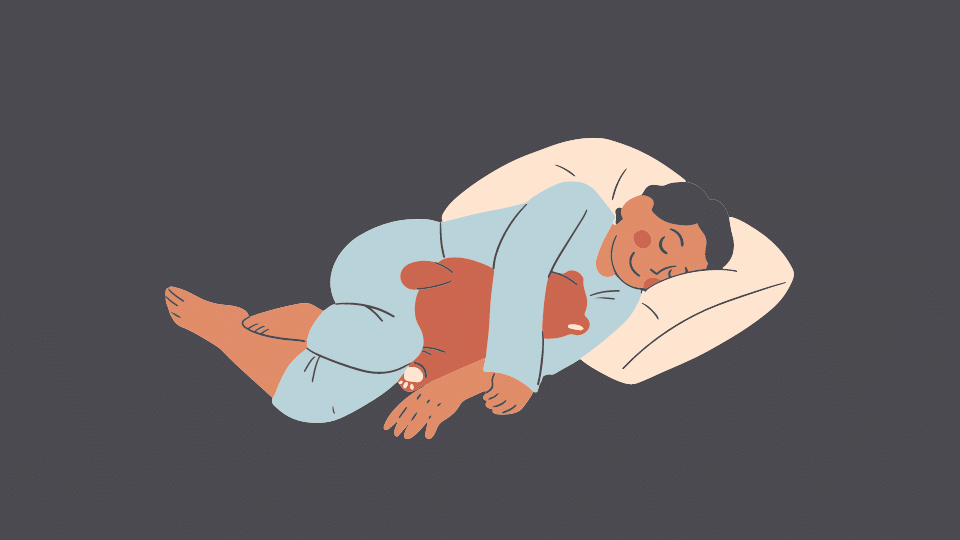Not getting enough sleep—or getting poor quality sleep—can have serious effects on your body, mood and memory, leaving you more susceptible to illness and other health problems
You probably don’t think much about it until you have trouble sleeping, but sleep is an incredibly important part of your health. Not getting enough sleep—or getting poor quality sleep—can have serious effects on your body, mood and memory, leaving you more susceptible to illness and other health problems. Luckily, there are several steps you can take to help yourself sleep peacefully at night. Follow these tips from the American Academy of Sleep Medicine to start sleeping better tonight.
1) Keep a regular sleep schedule
Make sure you’re getting enough sleep. This can be hard, but try to go to bed and wake up at the same time every day. You’ll feel more tired if you’re always going to bed late, which will make it easier for you to fall asleep. If you’re struggling with this, keep a sleep journal so that you can see what might be affecting your ability to sleep – like caffeine in the afternoon or anxiety about work. Make sure your room is dark and cool. This will help your body know that it’s time for bedtime and prepare it for restful slumber. Avoid screens before bed – TV, phone, computer – as they stimulate brain activity and prevent deep relaxation.
2) Get enough exercise
A lot of people know that it is important to get enough exercise, but they might not know how much is enough. The Mayo Clinic states that 30 minutes of moderate-intensity physical activity most days of the week will help you sleep better at night. Exercise helps your brain and body relax, so you can rest more easily at night. It also improves your mood and your ability to handle stress, which are both important aspects of a healthy sleeping environment.
3) Cut down on caffeine
If you’re having trouble sleeping, it might be because of the caffeine in your morning coffee. Caffeine can stay in your system for up to eight hours, so if you drink it before bedtime, it could keep you awake. Try cutting down on your caffeine intake during the day and see if that helps. If not, consider drinking decaf after 4 PM or switching from coffee to tea.
4) Avoid alcohol before bed
Avoid alcohol before bed. Alcohol may help you fall asleep, but it can prevent you from getting quality REM sleep that is necessary for restorative rest. Alcohol also suppresses your natural release of melatonin, the hormone that regulates your circadian rhythm and tells your body when it is time to go to sleep. Long term use of alcohol will also cause decreased natural production of serotonin and dopamine in your brain, which are important neurotransmitters responsible for regulating moods and sleeping cycles.
5) Don’t smoke
- Don’t smoke. Smoking not only causes cancer, but also makes it difficult to breathe and retain oxygen, which can lead to restless nights of tossing and turning. Even if you’re not able to quit smoking cold turkey, try cutting down on cigarettes throughout the day in order to get the most restful night’s sleep possible.
- Create a relaxing nighttime routine. A calming habit like taking a bath or reading before bed can help ensure that your mind is at ease when it comes time for bedtime. Find something that works best for you and stick with it – even if it takes some trial and error!
- Keep your bedroom cool and dark at night – especially if you live in warmer climates where cooler temperatures are preferred during the daytime hours as well.
6) Limit your exposure to light
If you’re still having trouble sleeping, see your doctor. He or she can recommend medication that will help you sleep better. You should also make sure your bed is comfortable and your room is dark and quiet. If all else fails, try to stay away from caffeine late in the day and avoid strenuous exercise before bedtime.
7) Create a comfortable sleeping environment
The first thing you’ll want to do is make sure your sleeping environment is as comfortable as possible. You can do this by making sure your mattress is comfortable and that there are no snoring spouses or roommates around. You might also want to invest in some blackout curtains, which will keep the sun out of your eyes while you’re trying to sleep. In addition, make sure you have a good pillow with proper neck support and that there are plenty of pillows available on hand.
8) Put away electronics
When it comes time to go to bed, turn off the TV and put your phone away. The light from these devices will mess with your circadian rhythm and make it hard for you to fall asleep. Instead of watching your favorite show before bed, read a book or do some meditation. You’ll be glad you did when morning rolls around!
9) Practice relaxation techniques
It might be tough at first, but practicing relaxation techniques can help you get the rest you need. In order to fall asleep quickly and stay asleep, it’s important to:
- Limit caffeine intake after 2pm 2. Avoid alcohol consumption 3. Practice relaxation techniques such as meditation or deep breathing 4. Stick with a routine, getting up and going to bed at the same time 5. Create a comfortable sleeping environment 6. Get plenty of exercise 7. Keep your bedroom cool
10) See a doctor if you’re still having trouble
If you’re still having trouble sleeping, it might be time to see a doctor. Sleep disorders are common, and they can have many different causes. Sometimes the cause is depression or anxiety, and sometimes it’s something else entirely. A doctor can check your brain activity with an electroencephalogram (EEG) or polysomnography (PSG). They can also ask about other health problems that might be affecting your sleep and put you on the right medication if needed. Sleeping more than 8 hours per day is not always necessary, but do try to get at least 6-7 hours of quality sleep each night. If you’re unable to achieve this without help from medication, talk with your doctor about whether a prescription might help you get back on track.









